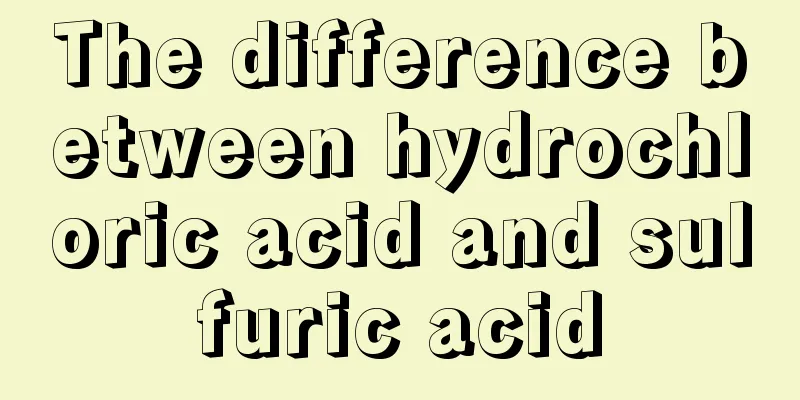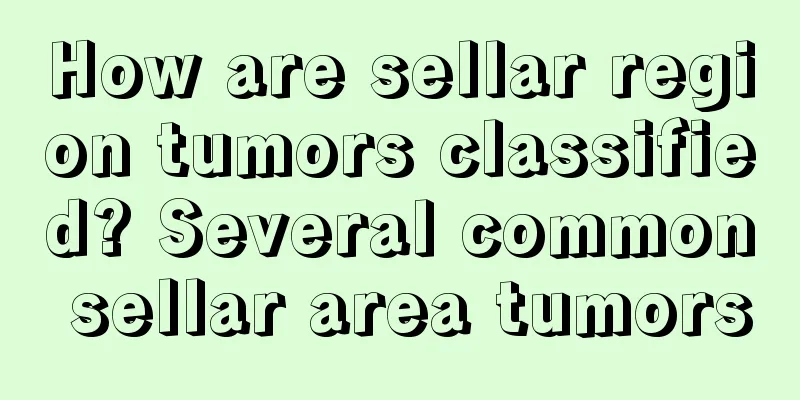The difference between hydrochloric acid and sulfuric acid

|
When you hear the word sulfuric acid, you may think of sulfuric acid as being corrosive, which can damage the skin or even disfigure it if it comes into contact with the skin. Therefore, sulfuric acid should be properly stored and kept out of the reach of children. There are certain differences between hydrochloric acid and sulfuric acid. Hydrochloric acid can be used in the food industry and metal processing industry. Sulfuric acid has applications in agriculture and explosives. Let’s talk about the difference between the two. Hydrochloric acid is an aqueous solution of HCl of varying concentrations. It is transparent, colorless or yellow, has a pungent odor and is highly corrosive. Easily soluble in water, ethanol, ether and oil, hydrochloric acid is extremely volatile. Sulfuric acid is one of the most active binary inorganic strong acids and can react with many metals. High concentration of sulfuric acid has strong water absorption and can be used as a dehydrating agent. It is highly corrosive and oxidizing and is not easy to volatilize. Concentrated hydrochloric acid is volatile and is a volatile acid, while concentrated sulfuric acid is a non-volatile acid. Open the cap of the concentrated hydrochloric acid reagent bottle, the solute in the concentrated hydrochloric acid: hydrogen chloride gas (HCl) will evaporate from its aqueous solution. When it meets moisture in the air, it will dissolve into it again and reform into many small liquid droplets of hydrochloric acid suspended in the air. To the naked eye, it appears as a white acid mist at the mouth of the bottle. Therefore, if white mist appears at the bottle mouth when you open the bottle cap, it is concentrated hydrochloric acid; if no white mist appears at the bottle mouth, it is concentrated sulfuric acid. Although concentrated hydrochloric acid and concentrated sulfuric acid both appear to be colorless liquids, their densities are different. The mass of an equal volume of concentrated sulfuric acid is much greater than that of concentrated hydrochloric acid. This results in concentrated sulfuric acid having the properties of an oily, viscous liquid. As long as you pick up the reagent bottle and shake it, the concentrated sulfuric acid will "hang on the wall", that is, it will stick to the wall of the reagent bottle and will not come off easily, and its viscosity can be easily seen. Therefore, if you shake the reagent bottle, if there is "sticking to the wall" phenomenon, it is concentrated sulfuric acid, and if there is no "sticking to the wall" phenomenon, it is concentrated hydrochloric acid. Uses of Hydrochloric Acid (1) Hydrometallurgy for rare metals (2) Used in organic synthesis (3) Used in bleaching and dyeing industry (4) Used for metal processing (5) Used in food industry (6) Used in the production of inorganic and organic drugs Sulfuric acid use (1) Ammonium sulfate for fertilizer production (2) Used in the production of chemical fibers, which are familiar to the public: viscose (3) Used in metallurgical industry and metal processing in the metallurgical industry sector (4) Used in explosives (5) Relationship with the Atomic Energy Industry and Rocket Technology |
<<: Ferric hydroxide and sulfuric acid
>>: Is the formaldehyde removal solution poisonous?
Recommend
How to reduce redness on the face
Everyone loves beauty, and this is even more true...
Beware of possible early symptoms of skin cancer in the elderly
Although it is also cancer, the early symptoms of...
Why does my face feel numb?
Facial numbness is a very common phenomenon. If t...
What to do if lymphoma relapses after chemotherapy
For any tumor, recurrence will be a sword hanging...
What is the reason for red and swollen eyelids
Nowadays, many people face the problem of insuffi...
How is thyroid cancer caused
How is thyroid cancer caused? Thyroid cancer is a...
Can neonatal hemolytic disease be cured?
Neonatal hemolytic disease refers to the mismatch...
Brief analysis of the main early symptoms of colorectal cancer
Early treatment is beneficial for any disease, es...
What does it mean to dream of losing three teeth?
We are bound to have some strange dreams. As long...
What are the causes of primary liver cancer
The occurrence of primary liver cancer is related...
Are there any differences in symptoms between anaplastic thyroid cancer and papillary thyroid cancer?
There are significant differences in the symptoms...
What are the effects of Vajra Bodhi seeds?
Vajra Bodhi seeds are often used to make various ...
Esophageal cancer patients can often eat coix seed after surgery
Esophageal cancer patients have basically passed ...
Effective methods to check for testicular cancer
Testicular cancer is a malignant disease that ser...
Eating crabs and pumpkins will cause poisoning
Pumpkin and crab are both things we eat frequentl...









